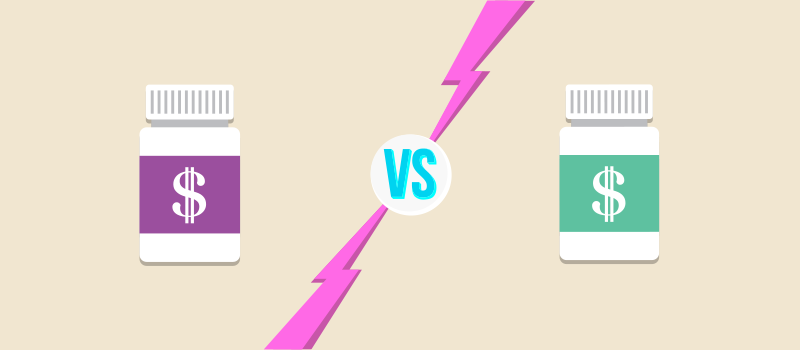Everything You Need to Know About Medicare Enrollment

Medicare is a health insurance program from the Federal Government in the United States for people aged 65 years or older. Certain people under the age of 65 can also qualify for Medicare. While Medicare helps with the cost of health care, it does not cover all medical expenses. You also have choices in the type of Medicare coverage you get. Please continue reading to learn more about Medicare enrollment.
What are the 3 requirements for Medicare?
To enjoy the benefits of Medicare health insurance, you should be:
- Age 65 years or older
- A U.S. resident
AND
- Either a U.S. citizen
OR
- A lawfully admitted foreigner who has been living permanently in the United States for at least 5 years continuously prior to the month you file your Medicare health insurance application.
Who can sign up for Medicare?
You can sign up for Medicare if you are:
- Age 65 years or older
- Under the age of 65 but with a disability or a diagnosis such as end-stage renal disease (ESRD) or amyotrophic lateral sclerosis (ALS) (also called Lou Gehrig's disease)
As noted above, some people under the age of 65 have Medicare eligibility. However, there are conditions to be met. To be eligible for Medicare coverage before age 65, you should have received disability benefits for at least 24 months. These could be either Social Security benefits or Railroad Retirement Board benefits.
When should you start the process of signing up for Medicare?
You should start the process of signing up for Medicare when you are about to turn 65. The Initial Enrollment Period for Medicare starts three months before your birth month. The Initial Enrollment Period ends three months after your birth month.
It is best to sign up for medical insurance coverage through Medicare during the Initial Enrollment Period. If you don’t sign up for Medicare when you first become eligible, you can still sign up later. However, you may have to bear additional costs and pay penalties.
Is a person automatically enrolled in Medicare at age 65?
Some people are automatically enrolled in Medicare, while others need to sign up.
You are automatically enrolled in Medicare if:
- You already receive benefits from the Social Security Administration or Railroad Retirement Board.
- You are under 65 and have received disability benefits for at least 24 months.
- You have ALS (Lou Gehrig's disease). Your Medicare benefits will start when your disability benefits start.
You must sign up for Medicare if:
- You are turning 65 and don’t receive Social Security disability benefits.
- You have end-stage renal disease (ESRD). You will need to contact Social Security to find out when your coverage for ESRD could end and when you’re eligible for Medicare.
People who are not included in the groups that are enrolled automatically are responsible for signing up for Medicare themselves. Failure to sign up when you first become eligible for Medicare coverage could lead to a considerable increase in costs.
What are the Medicare enrollment periods?
Initial Enrollment Period
The Initial Enrollment Period begins three months before and ends three months after your 65th birthday.
People still receiving health coverage through their employer or their spouse's employer when they turn 65 can continue to receive employee benefits. They will not be penalized for enrolling in Medicare later once their employer benefits end.
People who do not have health coverage from an employer and do not sign up for Medicare when they first become eligible have to pay higher costs if they decide to enroll in Medicare later.
Medicare’s General Enrollment Period
The Medicare General Enrollment Period runs from January 1 to March 31 every year. During this time, people who did not sign up during their Initial Enrollment Period can sign up for Medicare. However, their coverage will not start until July that year. They will also have to pay a late enrollment penalty.
Annual Enrollment Period
The Medicare Annual Open Enrollment Period is between October 15 and December 7 every year. During this time, you can make changes to your current coverage and enroll in a different Medicare plan.
Any changes made during the Annual Enrollment Period do not come into effect until January 1. If you are satisfied with your Medicare plan, you do not have to do anything. Your Medicare plan will renew automatically on January 1.
Some examples of the changes that you can make during the Annual Enrollment Period include:
- Switching from Medicare Part A and Medicare Part B (Original Medicare) to a Medicare Advantage Plan or vice versa.
- Switching from a Medicare Advantage plan with drug coverage to one without drug coverage or vice versa.
- Joining or leaving a prescription drug plan.
- Switching to a new plan from your current insurer.
- Switching to a new insurer.
Special Enrollment Period
Some people delay enrollment in Medicare after they turn 65 because they have employer coverage. Such individuals can enroll in Medicare later during the Special Enrollment Period. They can sign up for Medicare any time before their employment ends and up to eight months afterward without incurring any late enrollment penalty.
Medicare Advantage Plan Open Enrollment Period
The Medicare Advantage Open Enrollment Period is from January 1 through March 31 each year. People who are already enrolled in a Medicare Advantage plan can make a one-time change and choose another Medicare Advantage plan. They can also switch to Original Medicare during Medicare Open Enrollment.
Keep in mind that Medicare Advantage plans can only be purchased from private insurance companies. The new coverage takes effect on the first day of the following month after you make a change.
If you are a qualified worker, the Consolidated Omnibus Budget Reconciliation Act (COBRA) gives you and your family the right to continue group health plan coverage if you lose your employer’s health benefits. However, you should know that COBRA and retiree benefits are not considered active employment benefits. Therefore, they do not entitle you to enroll in Medicare during the Special Enrollment Period after your employment benefits end.
What is the best way to enroll in Medicare?
The best way to enroll in Medicare is by contacting Social Security at 800-772-1213. You can also apply for Medicare benefits online or visit your local Social Security office.
Which Medicare Plan is Right for Me?
Here is some general information to help you choose the best Medicare plan.
Medicare Part A
This Original Medicare coverage is for hospital costs. Most people who receive Part A do not have to pay any monthly premiums. You are eligible for free coverage if you or your spouse paid Medicare taxes while you were employed. People who are not eligible for the premium free part A can buy it by paying a monthly premium.
Medicare Part B
This covers doctor visits and outpatient care. You have to pay a monthly premium for Part B coverage. The Part B premium amount depends on your yearly income.
Medicare Advantage Plan
A Medicare Advantage Plan is similar to a Health Maintenance Organization (HMO) or Preferred Provider Organization (PPO) health plan. You must purchase a Medicare Advantage Plan from a private insurer. It is often possible to get a MA plan for a low premium. However, you will likely have to use the plan’s preferred network of providers.
Medicare Part D
Many Medicare Advantage plans include coverage for prescription drug costs. However, Medicare beneficiaries who don’t have prescription drug coverage can sign up for Part D separately.
Medicare Supplement Plan (Medigap)
Original Medicare Parts A and B are associated with many out-of-pocket costs such as deductibles, copayments, and coinsurance. For this reason, many people choose to purchase a Medicare Supplement plan or Medigap from a private insurance company. These plans fill the gaps in Medicare coverage and help with out-of-pocket expenses. The Medigap Enrollment Period is similar to the Initial Enrollment Period (3 months before and after you turn 65). It is best to enroll in a Medicare Supplement Plan when you first become eligible. Doing so at a later date may not be possible, or it may subject you to medical underwriting.
References:












SOCIAL